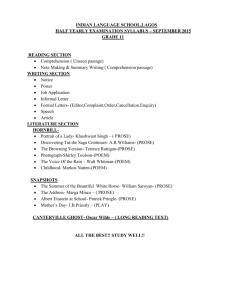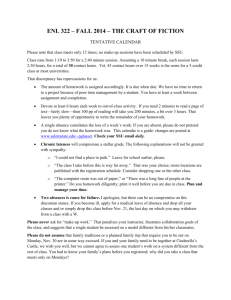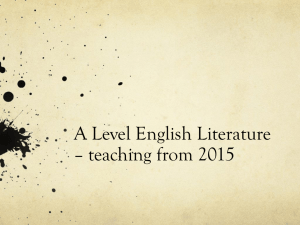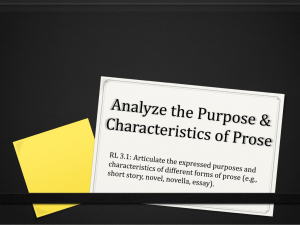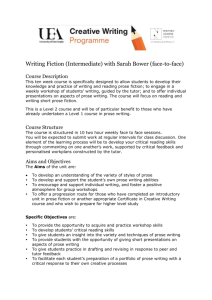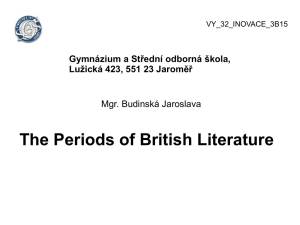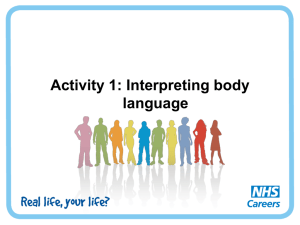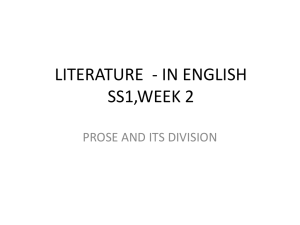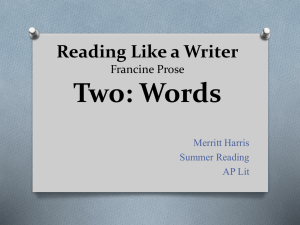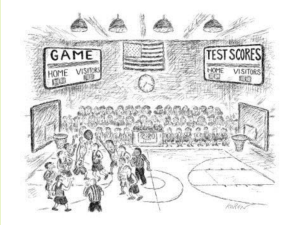Out from Under the Cloud of Unknowing gary`s - ibenglish3-mrso
advertisement
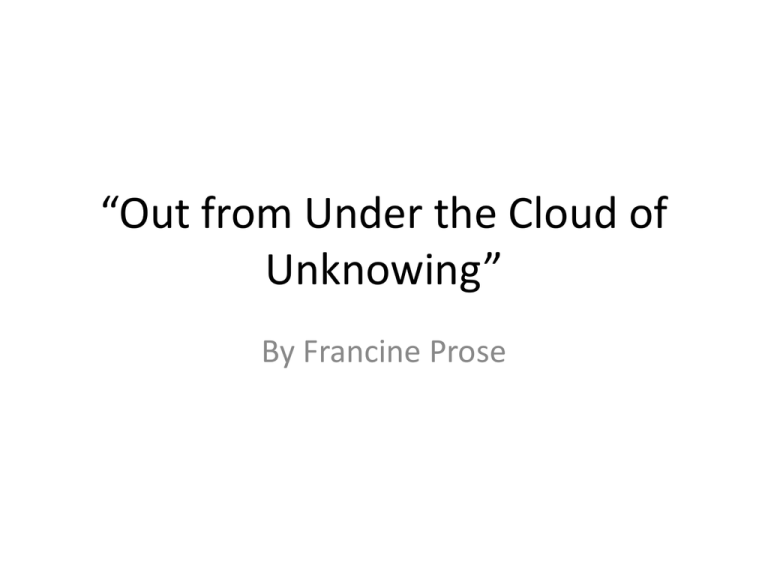
“Out from Under the Cloud of Unknowing” By Francine Prose Author’s Argument • Francine Prose believes that in order for a political story to truly capture the attention of the reader, it needs to be a story first with a subtle political message. Conveying the Message • “Life was short. I just couldn’t do it. I couldn’t face the prospect of not being particularly entertained and instead spending hundreds or thousands of pages being told more or less what I’ve just said about gender inequality in a couple of paragraphs” (Prose 35). Conveying the Message • “And politics can slip its way into poetry in a way that’s serious, graceful, and sly” (37). Conveying the Message • “Maybe that was the trouble with the novels I tried to read: They were insufficiently mysterious. A led to B, which led directly to C without a skip or side step into something more unexpected” (40) Conveying the Message • “Maybe, like other arts, political art might as well start from there-not from the impulse to teach or inform, but from the desire to discover and grope our way out from what a fourteenth-century English monk called the cloud of unknowing” (41). • Francine Prose used an allusion to The Cloud of Unknowing, a Christian Mystic book from the Late Middle Ages that suggested that spiritual experience with God could only be achieved through contemplative prayer, without any other form of thinking. Her opposition to this idea of unthinking conveys her argument of a book must first attract a reader’s thought away the bliss of not thinking to be able to teach anything.
